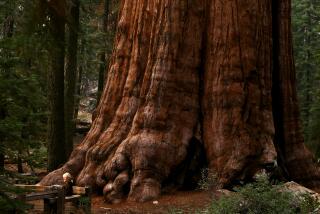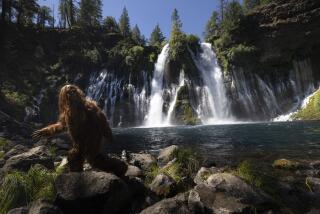A government shutdown means messy bathrooms in national parks
National parks have remained open amid a government shutdown — but there are parts of some of California’s most cherished natural wonders that visitors may want to avoid.
As legislators in Washington, D.C., worked toward a resolution Monday, national parks officials warned that emergency and rescue services are limited, some campgrounds are closed and most restrooms are locked up, or reaching capacity.
Services including public information, trash collection and highway maintenance were not available at visitor centers or along the roads wending through such world famous destinations as Yosemite, Death Valley and Joshua Tree national parks. All park programs were canceled.
“It’s great that the public can still come and visit,” Patrick Taylor, a spokesman for Death Valley National Park, said. “But they shouldn’t assume that after a five-hour drive to get here that visitor center restrooms are going to be unlocked.”
“We still have a dozen or so pit toilets scattered throughout the 3-million-acre park,” he added. “Normally, they’re serviced twice a day. So, they’re reaching capacity and not in a state most people will find useful.”
Death Valley, like many other national parks, would likely become fully operational in phases, Taylor said. “We’re going to have to ensure that our water systems and other critical infrastructure is working properly,” he said, “for health and safety.”
National Park Service social media and websites are not being monitored or updated and may not reflect current conditions, officials said.
Yosemite officials were unavailable for comment. But John Buckley, executive director of the nonprofit Central Sierra Natural Resource Center, said, “Unlike the last government shutdown in 2013, when Yosemite gates were locked, visitors are being allowed in to go pretty much where they please.”
“Trouble is, there won’t be staff at those gates to greet them, answer questions or hand out information,” he said.
At Joshua Tree National Park, “there was a lot of sadness going on among staffers who wanted to keep working without pay but couldn’t,” said Tom O’Key, a local community activist and leader of the local International Dark Skies Assn. chapter.
More to Read
Start your day right
Sign up for Essential California for news, features and recommendations from the L.A. Times and beyond in your inbox six days a week.
You may occasionally receive promotional content from the Los Angeles Times.







